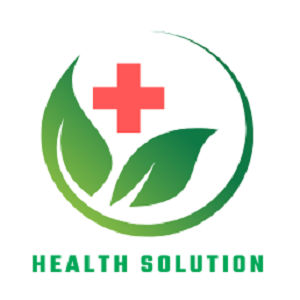To become a women’s health specialist, you must complete a medical or healthcare degree and specialize in the field of women’s health.

Photo Credit: https://www.freepik.com
Who Can Become A Women’s Health Specialist?
Becoming a women’s health specialist opens up a rewarding career choice. Anyone who is passionate about women’s health can pursue this profession. Key qualifications required for women’s health specialists include a strong educational background in medicine or reproductive health, comprehensive knowledge of women’s health issues, and excellent communication and interpersonal skills.
This profession offers different career paths, such as becoming an obstetrician/gynecologist, midwife, nurse practitioner, or reproductive health counselor. Each path requires specific training and certifications, but all focus on providing essential healthcare services to women. By specializing in women’s health, professionals have the opportunity to make a positive impact on the lives of women, ensuring their well-being through preventive care, diagnosis, and treatment of various health conditions.
Overall, a career in women’s health is not only fulfilling but also crucial in promoting the overall well-being of women in society.
Educational Requirements For Women’s Health Specialists
Becoming a women’s health specialist requires meeting specific educational requirements. Aspiring specialists have various undergraduate degree options to consider. Pursuing advanced degrees and obtaining relevant certifications also plays a crucial role in this career path. Continuous professional development is highly valued, enabling specialists to stay updated with the latest advancements in women’s health.
By actively participating in workshops, conferences, and continuing education programs, women’s health specialists ensure they are equipped with the necessary knowledge and skills to provide quality care. These ongoing educational opportunities help specialists stay on top of the latest research and breakthroughs, ultimately benefiting the patients they serve.
Specializations Within Women’S Health
Exploring different areas of specialization within women’s health can open up various career opportunities. Choosing a specific specialization offers several advantages, such as expert knowledge and targeted practice. By focusing on a particular area, you can develop a deeper understanding of specific issues and provide specialized care to women.
However, specializing in a particular field also comes with its challenges. It requires continuous learning and keeping up with advancements in your chosen specialization. It may also limit your scope of practice, as you focus solely on your area of expertise.
Despite the challenges, the benefits of specializing in women’s health outweigh the drawbacks, as it allows you to make a significant impact in a specific healthcare niche. Becoming a women’s health specialist is a rewarding and fulfilling journey for healthcare professionals passionate about improving women’s health.
Developing Clinical Expertise
Becoming a women’s health specialist requires developing clinical expertise through hands-on experience. Clinical rotations and internships offer valuable opportunities to gain practical knowledge. Collaborating with healthcare professionals also enhances expertise in this field. Staying updated with the latest research and advancements is crucial, given the evolving nature of women’s health.
By staying abreast of new developments, specialists can provide the best possible care and treatment options for their patients. Keeping up with current trends and research ensures that women’s health specialists are knowledgeable and capable of providing effective and cutting-edge care.
It is essential for aspiring specialists to continuously seek out educational opportunities and stay connected with the broader healthcare community. By doing so, they can maximize their clinical expertise and contribute to improving women’s health outcomes.
Building A Strong Foundation In Women’s Health
Building a strong foundation in women’s health requires a comprehensive understanding of women’s health issues. This entails developing excellent communication and interpersonal skills, allowing you to effectively connect with and support your patients. Additionally, it is vital to stay updated with the latest advancements in the field.
Attending seminars, conferences, and workshops can help enhance your knowledge and keep you abreast of the latest research and practices in women’s health. By continuously learning, staying informed, and honing your skills, you can become a women’s health specialist who provides exceptional care and support to women of all ages.
Understanding The Female Anatomy And Physiology
Becoming a women’s health specialist requires a thorough understanding of the female anatomy and physiology. Recognizing key aspects of the female reproductive system and hormonal changes is essential. It’s also important to be able to identify common gynecological and obstetric conditions that women may face.
But it doesn’t stop there; understanding women’s mental health and emotional well-being is equally crucial. As a women’s health specialist, you must be well equipped to address the unique challenges women may encounter. By developing a comprehensive knowledge of these areas, you can provide the necessary care and support to women throughout their lives.
So, if you’re aspiring to become a women’s health specialist, remember that it involves more than just medical expertise; it encompasses a multifaceted approach to women’s holistic well-being.
Holistic Approaches To Women’s Health
Being a women’s health specialist requires a deep understanding of holistic approaches to women’s health. Integrating alternative therapies and complementary treatments is essential in providing comprehensive care. Additionally, considering psychological, social, and cultural factors is crucial for addressing women’s unique healthcare needs.
By taking a holistic approach to women’s health, practitioners can offer personalized and effective solutions. It is important to recognize that women’s health should not be limited to physical well-being, but should also encompass mental and emotional wellness. By considering all these factors, women’s health specialists can provide the highest level of care and support to their patients.
Exploring different holistic healthcare practices allows for a more comprehensive and inclusive approach to women’s health.
Empowering Women Through Health Education
Becoming a women’s health specialist involves empowering women through health education. It is essential to promote health literacy among women by providing accurate information on contraception, fertility, and reproductive health. This includes addressing common misconceptions and myths related to women’s health.
By offering comprehensive and reliable resources, women can make informed decisions about their well-being. Empowering women with knowledge allows them to take control of their health and make choices that best suit their individual needs. With the right information and support, women can lead healthier lives and advocate for their own well-being.
Advancing As A Women’s Health Specialist
Advancing as a women’s health specialist offers numerous opportunities for career growth and advancement. Taking on leadership roles in healthcare organizations allows for greater influence and the ability to drive positive change in the field. Additionally, contributing to research and publications in women’s health demonstrates expertise and establishes a strong professional reputation.
By actively participating in the development of new knowledge and best practices, women’s health specialists can stay at the forefront of the field and make a meaningful impact on the lives of their patients. Embracing these opportunities for growth and advancement in women’s health opens doors to a fulfilling and rewarding career for individuals passionate about improving the well-being of women.
Networking And Collaboration
Networking and collaboration are crucial aspects of becoming a women’s health specialist. Establishing professional connections within the women’s health community is vital. Collaborating with other healthcare professionals ensures comprehensive care for patients. Joining professional organizations and associations allows for further networking opportunities and access to valuable resources.
These connections enable women’s health specialists to stay updated with the latest research, advancements, and best practices in the field. By actively participating in the community, specialists can share their knowledge, learn from others, and contribute to the improvement of women’s healthcare.
Building a strong network and fostering collaborations within the industry ultimately enhances the quality of care provided to women, addressing their specific health needs effectively and efficiently.
Advocacy And Policy Development
Advocating for women’s health rights and equality is crucial in becoming a women’s health specialist. Contributing to policy development and healthcare reforms is an important aspect of this role. By actively shaping policies, we can address healthcare disparities and strive to promote accessible women’s health services.
It is essential to challenge existing barriers and work towards creating a healthcare system that prioritizes the needs of women. As a women’s health specialist, our focus is on empowering women by championing for their rights, ensuring equal opportunities, and advocating for comprehensive healthcare.
By actively participating in advocacy and policy development, we can make a positive impact on the health and well-being of women everywhere.
Frequently Asked Questions
How Do You Become A Women’S Health Specialist?
you need to complete medical school, then pursue a residency in obstetrics and gynecology or family medicine. After residency, you can choose to specialize further by pursuing a fellowship in an area such as reproductive endocrinology or maternal-fetal medicine.
What Qualifications Do You Need To Be A Women’S Health Specialist?
you need to earn a medical degree, complete residency training in obstetrics and gynecology or family medicine, and obtain board certification in your specialty. Additionally, ongoing education and staying up-to-date with the latest research and advancements are crucial for providing quality care.
What Skills Are Important For A Women’S Health Specialist?
Important skills for a women’s health specialist include strong communication and compassion to build trust with patients, empathy, ability to explain complex medical information in simple terms, attention to detail, problem-solving skills, and the ability to stay calm and composed in stressful situations.
How Long Does It Take To Become A Women’S Health Specialist?
about 11 years of education and training. After completing a 4-year undergraduate degree, medical school takes 4 years, followed by a residency program that lasts 3-4 years. Additional years may be required for specialization through fellowships.
What Kind Of Patients Does A Women’S Health Specialist See?
A women’s health specialist sees patients of all ages for various reproductive health concerns, including puberty, contraception, pregnancy, menopause, and gynecological conditions. They also provide preventative care, perform screenings, and offer treatments for conditions like infertility, menstrual disorders, and sexually transmitted infections.
What Career Opportunities Are Available As A Women’S Health Specialist?
As a women’s health specialist, you can choose to work in private practice, hospitals, clinics, or academic settings. You may also have the opportunity to specialize further and focus on areas like reproductive endocrinology, urogynecology, gynecologic oncology, or maternal-fetal medicine.
Teaching, research, and advocacy roles are also options to consider.
Conclusion
Becoming a women’s health specialist requires dedication, passion, and a commitment to lifelong learning. By following the steps outlined in this blog post, you can embark on a fulfilling career in this field. Start by obtaining the necessary education and certifications, such as a degree in women’s health, nursing, or medicine.
Gain practical experience through internships and shadowing opportunities, allowing you to immerse yourself in the intricacies of women’s health care. Additionally, build a network of professionals in the field, attend conferences, and join relevant organizations to stay abreast of the latest advancements and research.
Remember, the key to becoming a successful women’s health specialist lies in being empathetic, respectful, and non-judgmental towards your patients. By understanding their unique needs and providing them with comprehensive care, you can make a positive impact on their lives and actively contribute to improving women’s health on a larger scale.
Take the first step today and embark on an exciting journey toward becoming a women’s health specialist.

